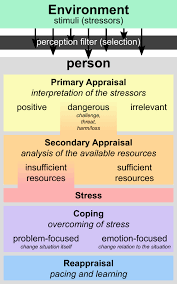In the Theoretical Framework for Migrant Integration, we are exploring the Acculturation Framework of Berry and the Coping Theory of Lazarus in Understanding the Integration of Migrant Employees in Business and Organization Studies.
The successful integration of migrant employees within organisations and workplaces is a complex and multidimensional process. To study this phenomenon, scholars have utilised various theoretical lenses to gain insights into the experiences, challenges, and strategies employed by migrant employees. Two prominent theories applied in international migrant employee integration are the Acculturation Framework of Berry and the Coping Theory of Lazarus. This paper aims to explore the appropriate use of these theories in studying the integration of migrant employees within business and organisation studies, highlighting their key concepts, applicability, and contributions.
Acculturation Framework of Berry as a Theoretical Framework for Migrant Integration
The Acculturation Framework of Berry, developed by John W. Berry, focuses on the adaptation process of individuals in multicultural settings. The framework proposes four acculturation strategies: assimilation, integration, separation, and marginalisation. Assimilation occurs when individuals adopt the dominant culture and abandon their heritage culture. Integration refers to the maintenance of both heritage and dominant cultural identities. Separation involves maintaining the heritage culture and rejecting the dominant culture, while marginalisation occurs when individuals leave both cultures.
Appropriate Use in Studying Theoretical Framework for Migrant Integration:
The Acculturation Framework of Berry provides a valuable lens to examine the integration experiences of migrant employees within organisations. By considering the various acculturation strategies, researchers can explore how migrant employees navigate the cultural challenges they encounter in the workplace. For instance, studies using this framework have investigated the impact of assimilationist organisational cultures on the integration of migrant employees and the benefits of promoting integration as a corporate value. Furthermore, the framework helps shed light on the consequences of different acculturation strategies on employee well-being, job satisfaction, and performance.
Contributions and Limitations in the Theoretical Framework for Migrant Integration:
The Acculturation Framework of Berry contributes to business and organisation studies by offering a comprehensive model to understand the acculturation process of migrant employees. It emphasises the importance of cultural identity and provides insights into individuals’ strategies to integrate successfully within organisations. However, it is essential to acknowledge the framework’s limitations, such as its focus on individual-level acculturation and the potential oversimplification of complex integration processes. Researchers must consider additional contextual factors and employ a more nuanced approach when applying the Acculturation Framework of Berry.
Coping Theory of Lazarus as a Theoretical Framework for Migrant Integration:
The Coping Theory of Lazarus, developed by Richard S. Lazarus, focuses on individuals’ cognitive and behavioural efforts to manage stressful situations. According to this theory, individuals engage in primary appraisal (evaluation of the case’s significance) and secondary assessment (evaluation of available coping strategies) to cope with stress. Coping strategies can be problem-focused (aimed at altering the stressor) or emotion-focused (aimed at managing the emotional response to the stressor).
Appropriate Use in Studying the Theoretical Framework for Migrant Integration:
The Coping Theory of Lazarus provides a valuable lens to study how migrant employees cope with the challenges they face during the integration process. Researchers can explore the cognitive appraisal of stressful situations, the coping strategies employed by migrant employees, and the effectiveness of these strategies in facilitating integration. For example, studies have examined the role of social support, resilience, and adaptive coping mechanisms in promoting the successful integration of migrant employees. Additionally, the theory helps to identify organisational interventions and support systems that can enhance managing resources and reduce stress among migrant employees.

Contributions and Limitations in Theoretical Framework for Migrant Integration:
The Coping Theory of Lazarus contributes to business and organisation studies by providing a theoretical framework to understand the psychological processes and coping strategies employed by migrant employees during integration. It highlights the importance of individual differences in coping and the role of social and organisational factors in facilitating effective coping mechanisms. However, it is essential to acknowledge that coping strategies may vary across cultural contexts, and cultural differences may influence the theory’s applicability in understanding and expressing stress and coping. Researchers must consider these cultural nuances when utilising the Coping Theory of Lazarus.
In conclusion, The Acculturation Framework of Berry and the Coping Theory of Lazarus offer valuable theoretical lenses for studying the successful integration of migrant employees within organisations and workplaces. These theories provide insights into the acculturation processes, coping strategies, and individual experiences of migrant employees. By applying these theoretical frameworks, researchers in business and organisation studies can deepen their understanding of the challenges, facilitators, and outcomes associated with migrant employee integration. However, it is crucial for researchers to acknowledge the limitations and cultural nuances when utilising these theories and to incorporate additional contextual factors for a comprehensive analysis of the topic.
References for Theoretical Framework for Migrant Integration
- Portes, A., & Zhou, M. (1993). The new second generation: Segmented assimilation and its variants. The Annals of the American Academy of Political and Social Science, 530(1), 74-96. [Link: https://www.jstor.org/stable/1047134]
- Berry, J. W. (1997). Immigration, acculturation, and adaptation. Applied psychology, 46(1), 5-34. [Link: https://doi.org/10.1111/j.1464-0597.1997.tb01087.x]
- Bloemraad, I. (2006). Becoming a citizen: Incorporating immigrants and refugees in the United States and Canada. University of California Press. [Link: https://www.ucpress.edu/book/9780520248991/becoming-a-citizen]
- Kymlicka, W., & Banting, K. (Eds.). (2018). The strains of commitment: The political sources of solidarity in diverse societies. Oxford University Press. [Link: https://global.oup.com/academic/product/the-strains-of-commitment-9780198795452?cc=us&lang=en&]
Theoretical Framework for Migrant Integration





